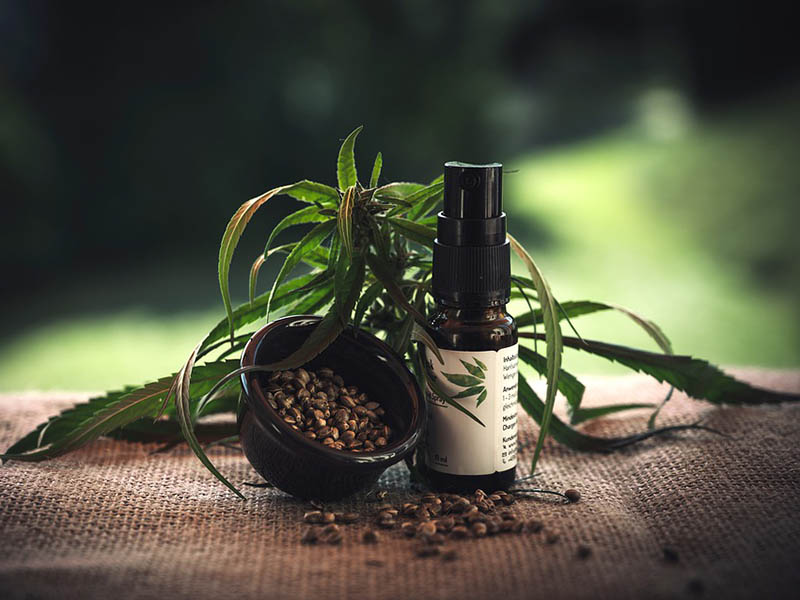What is a cannabinoid?
To understand how hemp-derived products work in the body, you first need to understand the endocannabinoid system (ECS), which is part of the mammalian central nervous system.
You and everyone you know, including your four-legged friends, have endocannabinoid systems (ECS). ECSs are thought to play a critical role in many bodily functions, including appetite, sleep, mood and damage control.
What is the effect of the environment?
CBD oil and hemp flowers is the best way to supplement your ECS or endocannabinoid system (part of the nervous system) while benefiting from hemp seed oil. In short, CBD enhances your well-being. The use of a broad spectrum CBD product, Hemp Seed Oil and Hemp Flowers, allows for what scientists call the “entourage effect”. In fact, it is claimed that CBD is most effective in the presence of the many other cannabinoids found in hemp. And that’s why he only uses full-spectrum oil with trace amounts of CBD (cannabidiol) and CBDA (cannabidiolic acid) and many other cannabinoids (e.g., CBG, CBDV, CBN and CBC), as well as terpenes and flavonoids for his products to develop their full potency. In addition, Bio CBD extracts contain phenols, valuable unsaturated fatty acids and minerals.
What is cannabidiol or CBD?
Cannabidiol, more commonly known as CBD, is one of the 113 cannabinoids found in hemp, and one of the two most abundant components along with THC, but unlike THC, cannabidiol lacks psychoactivity and is considered to have a broader scope for medical applications. Cannabidiol is the main plant component in hemp strains and because it lacks psychoactivity it does not affect the alteration of perception and mood modification that are the effects sought by recreational users, i.e. “the high”.
Currently, CBD is the cannabinoid that is recognized as having the most beneficial effects for the treatment of some symptoms and diseases, and with the widest therapeutic margin. Side effects are mild over a wide range of doses, so CBD is generally very well tolerated. Cannabidiol is insoluble in water, but soluble in organic solvents.
How do cannabinoids work in the body?
In general, the ECS can be thought of as your body’s regulatory committee. When things get out of balance, the ECS steps in to bring order to the chaos, also known as homeostasis. Our body produces chemicals called endocannabinoids. Our body has two networks of cannabinoid receptors: CB1 and CB2. CB1 receptors are found in our connective tissues, gonads, organs, and throughout the nervous system. CB2 receptors are distributed primarily throughout the immune system and related organs. However, both versions are found in a variety of body tissues.

Medicine and therapeutic properties of CBD
In medicine, it has been used to relieve anxiety, nausea, inflammation, seizures, and to inhibit the growth of cancer cells. In November, it was reported that CBD reduces the in vitro growth of aggressive human breast cancer cells and reduces their invasibility. Thus, it represents the first exogenous non-toxic agent that can lead to an inhibition of tumor aggressiveness.
Cannabidiol, as mentioned above, does not have psychoactive effects, although therapeutically it is not used to promote mood changes, like psychotropics, but for other pharmacological properties that are being studied. Recent studies have shown that cannabidiol is effective as an atypical antipsychotic in the treatment of schizophrenia. According to recent studies, cannabidiol has also been shown to be effective in the treatment of the effects produced by Parkinson’s disease. Since this is an incurable disease, these studies focused on improving the health of patients, obtaining satisfactory results in terms of reducing tremors and, thanks to its anti-inflammatory effect, in reducing some neuronal inflammation in the area of the substantia nigra, a characteristic of the disease.
The most important therapeutic properties of CBD, demonstrated with different quality of evidence are:
- Anti-inflammatory.
- Analgesic.
- Neuroprotective.
- Anticonvulsant.
- Antioxidant.
- Anti-nausea and antiemetic.
- Antitumor.
- Anxiolytic.
- Antipsychotic.
- Reducing the appetite for heroin, cocaine and alcohol.
- Immuno-modulator.
These properties make CBD to be used in the treatment of multiple diseases, some of which are:
- Epilepsy.
- Neurodegenerative diseases (e.g., Alzheimer’s, Parkinson’s and Multiple Sclerosis).
- Chemical dependencies.
- Anxiety.
- Psychosis.
- Autism spectrum disorder.
- Chronic inflammatory diseases such as chronic polyarthritis, Crohn’s disease, inflammatory bowel disease.
- Chemotherapy accompaniment.
- Antitumor treatment.
Beyond its therapeutic uses, in some jurisdictions, CBD is recommended as a dietary supplement.
Sneak a peek at their page to know more additional information about cbd oil review uk.


